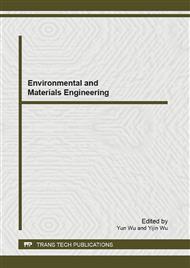p.1146
p.1151
p.1155
p.1161
p.1166
p.1171
p.1176
p.1180
p.1186
Does Energy Constraint Facilitate the Japanese Technical Change?
Abstract:
This study challenges the traditional wisdom that soaring energy prices exert negative effects upon economic growth. For an industrialized country with very tight energy supply constraints, increasing energy costs may drive the firms to seek for technical change and innovation to compete internationally. Using the Japanese monthly data ranging from 1975 to 2010, this study tests for the assumption of endogenous cost-driven technical change. We identify a long-run equilibrium co-integrating relationship among the Japanese industrial production, energy prices, export volumes and export prices. Although energy prices are negatively associated with Japanese industrial production in static equilibrium, the results of Granger causality tests show that an increase in domestic energy costs has significantly positive effects on Japan’s industrial production as well as on export volumes and prices, in both short-run and long-run. We document that the seemingly paradox strongly suggests an endogenous technological change driven by energy costs in Japan.
Info:
Periodical:
Pages:
1166-1170
DOI:
Citation:
Online since:
February 2013
Authors:
Price:
Сopyright:
© 2013 Trans Tech Publications Ltd. All Rights Reserved
Share:
Citation:


